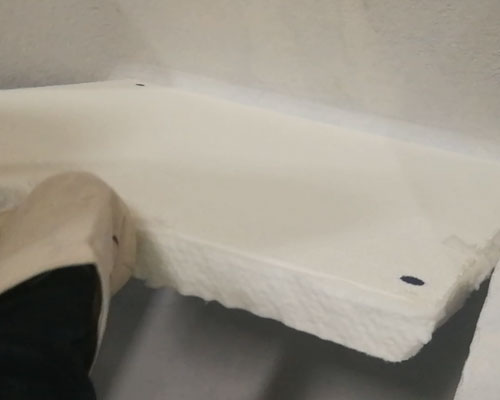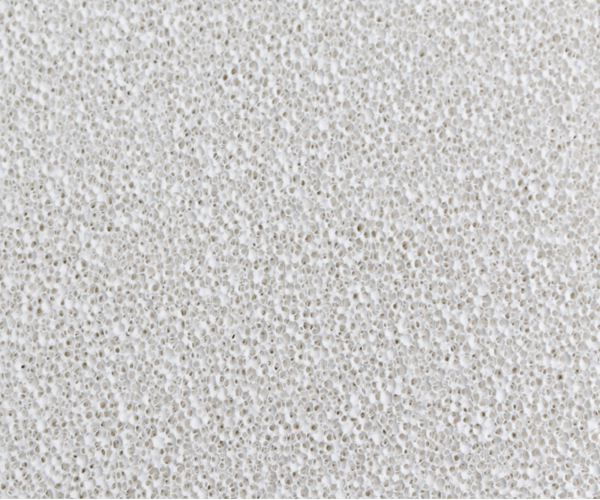The use of alumina particles in ceramic foam filter seems to be an obvious choice for molten aluminum and its alloys filtration. Alumina is relatively chemically inert in molten aluminum. It is also widely used as a particulate material in refractory materials used in furnaces to melt and maintain molten aluminum alloys. In addition, before the development of disposable ceramic foam filters, plate-shaped alumina bed filter is used for molten aluminum filtration. A bed filter is a large heating vessel containing unbound plate-like alumina particles and is used for repeated casting over a period of days or even weeks. Long-term exposure of molten metal to unbound aggregate materials (such as bed filters and refractory materials) requires the use of chemically inert particulate materials, such as alumina.
However, alumina has a relatively high coefficient of linear thermal expansion (8.0×10^-6/°C), and the overall shape of alumina, such as ceramic foam filter, has poor thermal shock resistance due to the high thermal stress generated by the combination Thermal gradient due to uneven heating and high thermal expansion coefficient. During the preheating and initial molten metal contact, the ceramic foam filter material may undergo thermal shock cracking or peeling, and cause the filter material to be released into the ingot or billet and become inclusions there. In addition, when the alumina foam filter is in a restricted filter bowl during preheating and use, high lateral compression stress can be the result of the high thermal expansion rate of the filter, resulting in compression damage to the filter.

Aluminum orthophosphate (Al(H2 PO4) 3) is widely used as a refractory binder in the metal industry. It has good green strength during the drying process at a relatively low temperature, low shrinkage of the green body, and good strength in the subsequent firing process. Aluminum orthophosphate is relatively cheap, widely available and requires a relatively low firing temperature (1,100°C) to obtain the final aluminum phosphate (AlPO4) bond. For these reasons, and the relatively low cost of aluminum orthophosphate, this material is widely used to make ceramic foam filters for molten aluminum filtration.
However, the formed aluminum phosphate bond will react with the magnesium in many commercial aluminum alloys and is not suitable for aluminum-magnesium alloys. The magnesium in molten aluminum is highly reactive, has a relatively high vapor pressure, and easily penetrates into any refractory matrix. There is easily reacts with almost all common oxide materials.

